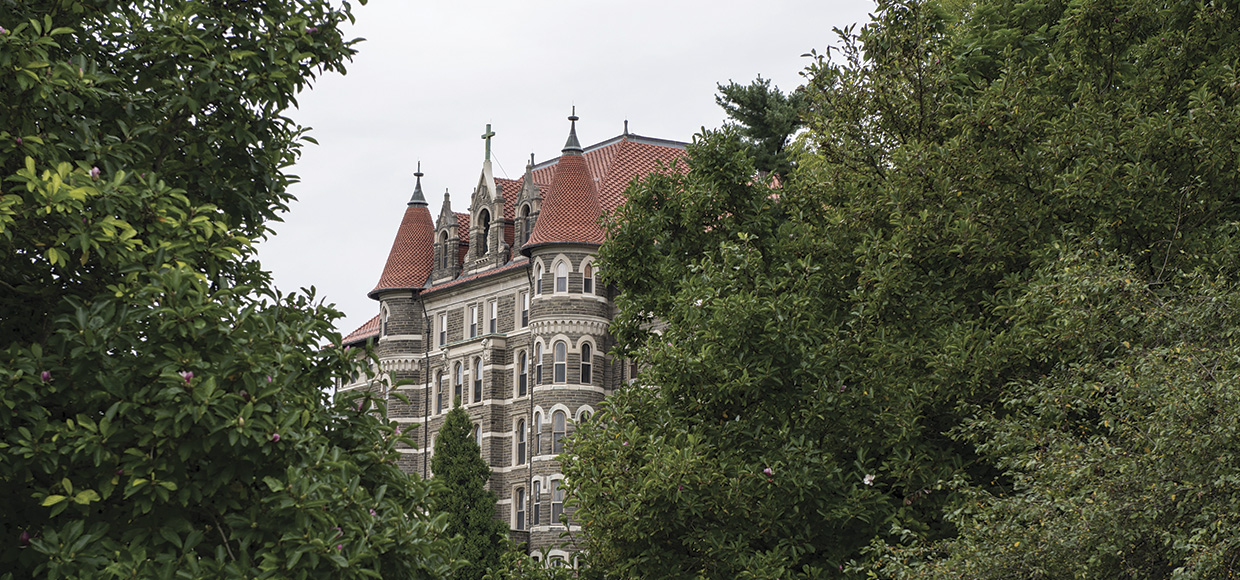Sample Summer 2025 Offerings
Looking for something you don’t see here or have any questions? Email lifelonglearning@chc.edu
ARTH 261 Early Italian Renaissance Art
TTH 9:30-10:45 AM
A study of Italian painting, sculpture and architecture from the thirteenth century through the fifteenth centuries. Emphasizes new understandings of the self and of the world and their effects on the arts.
ARTS 132/232/332 Painting with the Dear Neighbor, any level,
Mondays 3:30-6:30 PM
Designed for students who might prefer a “step by step” approach to painting in the style of paint and sip nights with the desire to build community and friendships within the class. A strong focus of the course is to use art making to flesh on the beautiful mission of the College. The course will treat painting on canvas as an event to experience, to understand, and to celebrate the journey of fellow students’ lives in a more meaningful way. Each class meeting students will start and finish a new painting, and each painting may be seasonal or attached to current events.
BUSN-270/MCOM 270 Business Communication, Online Asynchronous, No First Year Students
Focuses on developing oral and written communication skills in the context of the contemporary business environment. Students learn how to create documents specific to transactions within and across businesses entities. Students apply skills in planning, composing, and revising a variety of messages delivered orally and through writing. In addition, students will learn to prepare for an employment interview including researching potential organizations, writing a cover letter/resume and planning for the interview. Students develop the competencies necessary to communicate effectively in a variety of professional situations that involve speaking, listening and writing.
FREN 101 Elementary French 1
MW 9:30-10:45 AM
Introduction to the French language for students with little or no previous experience. Emphasizes the four skills of reading, writing, speaking, and understanding and the World Readiness Standards for Learning Languages. Incorporates the ACTFL proficiency guidelines. Includes audio-visual materials, and Internet resources.
FREN 102 Elementary French 2
TTH 9:30-10:45 AM
Continues the basics of the French language for students with at least one semester of preparation or the equivalent. Emphasizes the four skills of reading, writing, speaking, and understanding and World Readiness Standards for Learning Languages. Incorporates the ACTFL proficiency guidelines and includes audio-visual materials and internet resources.
HIST 219 France and the Modern World
TTH 11 – 12:15
Focuses on France from the Bourbon Restoration of Louis XVIII to the Fifth Republic of Emmanuel Macron. Emphasis is placed on political, social, and cultural developments from 1815 to the present. Topics include: Industrial Revolution, French colonialism, women in French society, bohemian Paris, fascism and anti-Semitism, the student movement of the 1960s, the course of French socialism, immigration, and the European Union.
HIST281.02 Childhood in World History
MW 12:30-1:45 PM
This course introduces students to childhood as a subject of historical inquiry. We will survey changing attitudes toward children and experiences of childhood across world cultures from the eighteenth to the late twentieth century, primarily in Europe, Africa, Asia, and North America. We will study these global transformations in conjunction with social, political, cultural, and legal processes, including consumerism and material culture, citizenship, nationalism, war, and colonialism.
ITAL 101 Elementary Italian 1
MW 12:30-1:45 PM
Introduction to the Italian language for students with little or no previous experience. Focuses on the four skills of reading, writing, speaking, and understanding and the World Readiness Standards for Language Learning and incorporates the ACTFL proficiency guidelines. Includes audio-visual materials and Internet resources.
MCOM 232 International Cinema
T 11-1:50
Traces the historical foundations of film production and history internationally. The course moves chronologically and geographically through important periods and advances. These include German Expressionism, Italian Neo-Realism, New Wave cinema, various genres, and current movements. Students will learn to analyze and write critically about film.
MCOM 351 The Art of Protest & Social Change
MW 9:30-10:45 AM
This course explores the pivotal role artists play in the fight for social justice historically and in the contemporary context, both locally and globally.
Guiding questions include: What does protest look like? What skills are useful in shaping social change through the arts? What ethical dilemmas arise in socially engaged art?
Through a diverse range of assignments, including papers, journals, digital storytelling, and hands-on projects, students will engage in reflective and experiential learning, fostering a deeper understanding of the transformative power of art in the realm of social change.
MUSC 124 American Music
MW 12:30-1:45 PM
A panoramic survey of the streams of American music in the twentieth century. Encompasses ethnic, folk, religious, and popular music; jazz and its forerunners and a brief history of Rock and Roll. No musical background necessary.
PYSC 217 Abnormal Psychology
MW 9:30-10:45 AM
Focuses on the study of abnormal behavior, classification of Psychological disorders as well as possible causes, treatment options, prevention and prognosis. Examines the major theoretical perspectives in abnormal behavior.
HSLP 258/RLST 258 Human Trafficking: Catholic Thought,
MW 8AM -9:15 AM
This course will explore the issue of human trafficking from the perspective of the core themes of Catholic Social Teaching, Spirituality, the Mission of Chestnut Hill College, and the Mission of the Sisters of Saint Joseph. Students will learn about human dignity, social justice, and the common good and how these principles can be applied to raise their awareness of human trafficking, become more compassionate towards those experiencing it, and make responsible choices to help alleviate this egregious human rights violation. The course will cover topics such as the root causes of trafficking, the experiences of survivors, the role of law enforcement and government agencies, and best practices for prevention and intervention. Students will also engage in discussions and reflections on the ethical and moral implications of human trafficking and the response of faith traditions to this global issue. Ultimately, the course aims to equip students with the knowledge and skills necessary to act responsibly regarding human rights and social justice.


